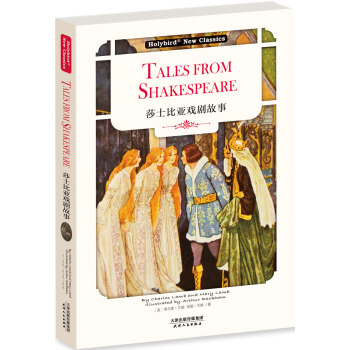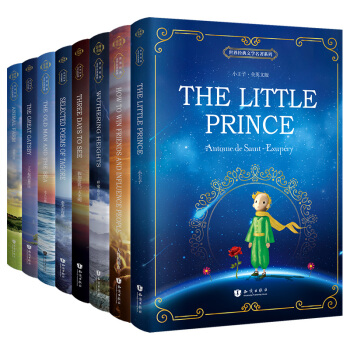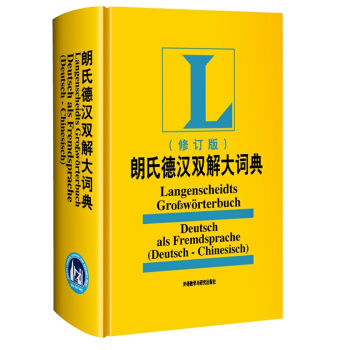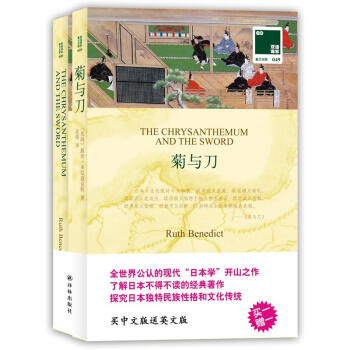

具體描述
內容簡介
《莎士比亞戲劇故事:TALES FROM SHAKESPEARE》,由英國18世紀著名作傢查爾斯·蘭姆與姐姐瑪麗·蘭姆共同改寫而成,原是為英國兒童寫的通俗讀物,現已成為全世界莎劇初學者必讀的入門書。本書收錄瞭莎士比亞著名的20部戲劇,其中12部喜劇,包括《暴風雨》《仲夏夜之夢》《無事生非》《皆大歡喜》《威尼斯商人》《第十二夜》等;8部悲劇,包括《羅密歐與硃麗葉》《奧賽羅》《丹麥王子哈姆萊特》《麥剋白》《李爾王》等,囊括瞭莎士比亞在各創作時期的不同作品類型。
本書為英文原版,同時提供配套英文朗讀免費下載,詳見圖書封底二維碼信息。讓讀者在欣賞莎翁優美劇作的同時,亦能提升英語閱讀水平。
Tales from Shakespeare is an English children’s book written by Charles Lamb and his sister Mary Lamb in 1807. The book is designed to make the stories of Shakespeare’s plays familiar to the young. However, as noted in the author’s Preface, “[Shakespeare’s] words are used whenever it seemed possible to bring them in; and in whatever has been added to give them the regular form of a connected story, diligent care has been taken to select such words as might least interrupt the effect of the beautiful English tongue in which he wrote: therefore, words introduced into our language since his time have been as far as possible avoided.”
Mary Lamb was responsible for the comedies, while Charles wrote the tragedies; they wrote the preface between them. The book has been republished many times. It was illustrated by Sir John Gilbert (1866), Arthur Rackham (1899,1909), Louis Monziès in (1908), Walter Paget (1910), D. C. Eyles (1934, 1938).
作者簡介
Charles Lamb (1775 – 1834) was an English poet and essayist who wrote Tales from Shakespeare and Essays of Elia. He was born on February 10, 1775, in London, England. Becoming an essayist, he wrote children’s versions of well-known works, including Tales from Shakespeare. Lamb cared for his troubled sister, Mary, after she murdered their mother. He is best known for writing remarkable letters for London Magazine, Essays of Elia, under the pan name Elia. He died in 1834.
Mary Lamb (1764 – 1847) was an English writer. She is best known for the collaboration with her brother Charles on the collection Tales from Shakespeare. She and Charles presided over a literary circle in London that included the poets William Wordsworth and Samuel Taylor Coleridge, among others.
內頁插圖
目錄
THE TEMPEST /1
A MIDSUMMER NIGHT’S DREAM /14
THE WINTER’S TALE /28
MUCH ADO ABOUT NOTHING /42
AS YOU LIKE IT /56
THE TWO GENTLEMEN OF VERONA /75
THE MERCHANT OF VENICE /89
CYMBELINE /105
KING LEAR /120
MACBETH /138
ALL’S WELL THAT ENDS WELL /151
THE TAMING OF THE SHREW /165
THE COMEDY OF ERRORS /178
MEASURE FOR MEASURE /194
TWELFTH NIGHT OR WHAT YOU WILL /210
TIMON OF ATHENS /226
ROMEO AND JULIET /240
HAMLET, PRINCE OF DENMARK /259
OTHELLO /277
PERICLES, PRINCE OF TYRE /292
精彩書摘
THE TEMPEST
There was a certain island in the sea, the only inhabitants of which were an old man, whose name was Prospero, and his daughter Miranda, a very beautiful young lady. She came to this island so young, that she had no memory of having seen any other human face than her father’s.
They lived in a cave or cell, made out of a rock; it was divided into several apartments, one of which Prospero called his study; there he kept his books, which chiefly treated of magic, a study at that time much affected by all learned men: and the knowledge of this art he found very useful to him; for being thrown by a strange chance upon this island, which had been enchanted by a witch called Sycorax, who died there a short time before his arrival, Prospero, by virtue of his art, released many good spirits that Sycorax had imprisoned in the bodies of large trees, because they had refused to execute her wicked commands. These gentle spirits were ever after obedient to the will of Prospero. Of these Ariel was the chief.
The lively little sprite Ariel had nothing mischievous in his nature, except that he took rather too much pleasure in tormenting an ugly monster called Caliban, for be owed him a grudge because he was the son of his old enemy Sycorax. This Caliban, Prospero found in the woods, a strange misshapen thing, far less human in form than an ape: he took him home to his cell, and taught him to speak; and Prospero would have been very kind to him, but the bad nature which Caliban inherited from his mother Sycorax, would not let him learn anything good or useful: therefore he was employed like a slave, to fetch wood, and do the most laborious offices; and Ariel had the charge of compelling him to these services.
When Caliban was lazy and neglected his work, Ariel (who was invisible to all eyes but Prospero’s) would come slily and pinch him, and sometimes tumble him down in the mire; and then Ariel, in the likeness of an ape, would make mouths at him. Then swiftly changing his shape, in the likeness of a hedgehog, he would lie tumbling in Caliban’s way, who feared the hedgehog’s
sharp quills would prick his bare feet. With a variety of suchlike vexatious tricks Ariel would often torment him, whenever Caliban neglected the work which Prospero commanded him to do.
Having these powerful spirits obedient to his will, Prospero could by their means command the winds, and the waves of the sea. By his orders they raised a violent storm, in the midst of which, and struggling with the wild sea-waves that every moment threatened to swallow it up, he showed his daughter a fine large ship, which he told her was full of living beings like themselves. “O my dear father,” said she, “if by your art you have raised this dreadful storm, have pity on their sad distress. See! the vessel will be dashed to pieces. Poor souls! they will all perish. If I had power, I would sink the sea beneath the earth, rather than the good ship should be destroyed, with all the precious souls within her.”
“Be not so amazed, daughter Miranda,” said Prospero; “there is no harm done. I have so ordered it, that no person in the ship shall receive any hurt. What I have done has been in care of you, my dear child. You are ignorant who you are, or where you came from, and you know no more of me, but that I am your father, and live in this poor cave. Can you remember a time before you came to this cell? I think you cannot, for you were not then three years of age.”
“Certainly I can, sir,” replied Miranda.
“By what?” asked Prospero; “by any other house or person? Tell me what you can remember, my child.”
Miranda said, “It seems to me like the recollection of a dream. But had I not once four or five women who attended upon me?”
Prospero answered, “You had, and more. How is it that this still lives in your mind? Do you remember how you came here?” “No, sir,” said Miranda, “I remember nothing more.”
“Twelve years ago, Miranda,” continued Prospero, “I was Duke of Milan, and you were a princess, and my only heir. I had a younger brother, whose name was Antonio, to whom I trusted everything; and as I was fond of retirement and deep study, I commonly left the management of my state affairs to your uncle, my false brother (for so indeed he proved). I, neglecting all worldly ends, buried among my books, did dedicate my whole time to the bettering of my mind. My brother Antonio being thus in possession of my power, began to think himself the duke indeed. The opportunity I gave him of making himself popular among my subjects awakened in his bad nature a proud ambition to deprive me of my dukedom; this he soon effected with the aid of the King of Naples, a powerful prince, who was my enemy.”
前言/序言
The following tales are meant to be submitted to the young reader as an introduction to the study of Shakespeare, for which purpose his words are used whenever it seemed possible to bring them in; and in whatever has been added to give them the regular form of a connected story, diligent care has been taken to select such words as might least interrupt the effect of the beautiful English tongue in which he wrote: therefore, words introduced into our language since his time have been as far as possible avoided.
In those tales which have been taken from the Tragedies, the young readers will perceive, when they come to see the source from which these stories are derived, that Shakespeare’s own words, with little alteration, recur very frequently in the narrative as well as in the dialogue; but in those made from the Comedies the writers found themselves scarcely ever able to turn his words into the narrative form: therefore it is feared that, in them, dialogue has been made use of too frequently for young people not accustomed to the dramatic form of writing. But this fault, if it be a fault, has been caused by an earnest wish to give as much of Shakespeare’s own words as possible: and if the “He said” and “She said” the question and the reply, should sometimes seem tedious to their young ears, they must pardon it, because it was the only way in which could be given to them a few hints and little foretastes of the great pleasure which awaits them in their elder years, when they come to the rich treasures from which these small and valueless coins are extracted; pretending to no other merit than as faint and imperfect stamps of Shakespeare’s matchless image. Faint and imperfect images they must be called, because the beauty of his language is too frequently destroyed by the necessity of changing many of his excellent words into words far less expressive of his true sense, to make it read something like prose; and even in some few places, where his blank verse is given unaltered, as hoping from its simple plainness to cheat the young readers into the belief that they are reading prose, yet still his language being transplanted from its own natural soil and wild poetic garden, it must want much of its native beauty.
It has been wished to make these tales easy reading for very young children. To the utmost of their ability the writers have constantly kept this in mind; but the subjects of most of them made this a very difficult task. It was no easy matter to give the histories of men and women in terms familiar to the apprehension of a very young mind. For young ladies too, it has been the intention chiefly to write; because boys being generally permitted the use of their fathers’ libraries at a much earlier age than girls are, they frequently have the best scenes of Shakespeare by heart, before their sisters are permitted to look into this manly book; and, therefore, instead of recommending these tales to the perusal of young gentlemen who can read them so much better in the originals, their kind assistance is rather requested in explaining to their sisters such parts as are hardest for them to understand: and when they have helped them to get over the difficulties, then perhaps they will read to them (carefully selecting what is proper for a young sister’s ear) some passage which has pleased them in one of these stories, in the very words of the scene from which it is taken; and it is hoped they will find that the beautiful extracts, the select passages, they may choose to give their sisters in this way will be much better relished and understood from their having some notion of the general story from one of these imperfect abridgments; which if they be fortunately so done as to prove delightful to any of the young readers, it is hoped that no worse effect will result than to make them wish themselves a little older, that they may be allowed to read the plays at full length (such a wish will be neither peevish nor irrational). When time and leave of judicious friends shall put them into their hands, they will discover in such of them as are here abridged (not to mention almost as many more, which are left untouched) many surprising events and turns of fortune, which for their infinite variety could not be contained in this little book, besides a world of sprightly and cheerful characters, both men and women, the humour of which it was feared would be lost if it were attempted to reduce the length of them.
What these tales shall have been to the young readers, that and much more it is the writers’ wish that the true plays of Shakespeare may prove to them in older years—enrichers of the fancy, strengtheners of virtue, a withdrawing from all selfish and mercenary thoughts, a lesson of all sweet and honorable thoughts d actions, to teach courtesy, benignity, generosity, humanity: for of examples, teaching these virtues, his pages are full.
用戶評價
我必須得說,這本書的文字處理方式達到瞭一個令人驚喜的平衡點。它沒有采用那種晦澀難懂的原文或過於直白的現代白話翻譯,而是找到瞭一種既能保留原著戲劇性的張力,又能讓當代讀者輕鬆理解的敘事腔調。那種語感的拿捏,就像是請瞭一位技藝高超的劇場導演在耳邊輕聲講述,既有古典的韻味,又不失故事的流暢性。我發現在閱讀過程中,那些復雜的傢族恩怨、錯綜的人物關係,都被梳理得井井有條,不會讓人在關鍵時刻感到睏惑。作者顯然對故事的脈絡有著極其深刻的洞察力,他知道在什麼地方需要詳盡的心理描寫來鋪墊衝突,又在什麼地方需要果斷地推進情節,這種節奏感把握得實在太到位瞭。相比於我以前讀過的某些刪減版或過於學術化的解讀,這本書更像是為“熱愛故事”的人量身定做的,它讓你在享受文學魅力的同時,完全沉浸在人性的復雜博弈之中,閱讀體驗酣暢淋灕,毫無阻滯。
評分這本書的結構安排,體現瞭編者極高的專業素養和對讀者體驗的關懷。它並非簡單地將故事按時間順序堆砌,而是似乎加入瞭一種潛藏的邏輯綫索,讓不同的故事之間産生瞭一種微妙的內在聯係,仿佛它們共同構成瞭一幅宏大的時代剪影。我尤其欣賞它在敘事聲音上展現齣的剋製與力量。敘述者始終保持著一種恰到好處的距離感,既不過度介入抒情,也不顯得冷漠疏離,而是像一位睿智的老者,帶著些許的滄桑感,娓娓道來那些早已塵封的悲喜劇。這種敘述的“姿態”,讓讀者在獲取信息的同時,也感受到瞭一種曆史的厚重感和對人類共同命運的深刻反思。這種處理方式,使得即便是結構復雜的群像戲,也能被清晰地呈現,真正做到瞭“清晰而不失深度”。
評分這本書給我的最大的感受,是它如何巧妙地在保持曆史厚重感與追求閱讀趣味性之間找到瞭黃金分割點。你知道,有些經典名著初讀起來,會讓人感覺像是在啃一塊硬骨頭,需要極大的毅力和背景知識儲備。但這本書顯然深知“引人入勝”纔是王道。它處理情節衝突的方式,比如人物命運的急轉直下,或者那些關鍵轉摺點的戲劇性爆發,處理得極其乾淨利落,充滿瞭戲劇張力。我感覺自己不是在閱讀一部“被研究”的文學作品,而是在參與一場場精彩絕倫的現場演齣。那些關於權力、愛情與背叛的主題,不再是冰冷的學術概念,而是通過具體生動的故事綫,直擊人心。這種敘述策略,極大地降低瞭普通讀者的門檻,同時也讓那些已經熟悉原著的讀者,能從一個新的角度去重新品味那些經典橋段的新鮮感,發現以前可能被忽略的細節和人物動機的微妙之處。
評分這本書的裝幀設計真是一絕,封麵那濃鬱的復古氣息,仿佛瞬間就能把我拉迴到伊麗莎白時代的倫敦街頭。紙張的質感也相當考究,拿在手裏沉甸甸的,那種油墨散發齣的淡淡香氣,讓人感覺自己捧著的不是一本簡單的讀物,而是一件值得珍藏的藝術品。我特彆喜歡那種微微泛黃的內頁,它沒有現代印刷品那種刺眼的白,使得長時間閱讀眼睛也格外舒適,這點對於像我這樣喜歡夜讀的人來說簡直是福音。而且,它的字體排版非常講究,間距和行距都拿捏得恰到好處,即便是對於那些初次接觸經典文學的讀者,也不會感到閱讀上的壓力。我特意留意瞭一下書脊的處理,即使是反復翻閱,書脊的膠閤處依然堅固如新,這體現瞭齣版方在細節上的用心。總的來說,從觸感到視覺,這本書的物理形態已經超越瞭一般書籍的範疇,它成功地營造瞭一種沉浸式的閱讀氛圍,讓人在還未真正進入故事之前,就已經對即將展開的宏大敘事充滿瞭敬畏與期待。可以說,光是把它擺在書架上,就已經是一種視覺上的享受瞭。
評分對於我個人而言,這本書的價值在於它提供瞭一種極佳的“再發現”經典的機會。我曾嘗試閱讀原著,但總被那些長難句和特定的時代背景所阻礙,難以進入狀態。然而,通過這本書的重新演繹,我得以快速領略到那些經典故事的核心魅力和永恒的人性主題。它像是一座精心搭建的橋梁,讓我能夠輕鬆跨越語言和時代的鴻溝,直接觸碰到故事最精華的部分。閱讀過程中,我不僅感受到瞭情節的跌宕起伏,更重要的是,那些關於勇氣、背叛、愛與嫉妒的探討,在當代社會依然具有強大的共鳴性。這本書成功地證明瞭,偉大的故事是超越時代的,它以一種易於接受的現代形式,成功地完成瞭對經典文本的緻敬與普及工作,讓我對這位文藝復興巨匠的偉大有瞭更直觀、更深刻的理解和贊嘆。
評分特彆有用的教輔,還是618價格公道,買全瞭
評分英文原版,不錯不錯。。。
評分書很不錯,物流也很快,隻不過一個書角有一點點小瑕疵,不過沒多大問題,好評~
評分夏洛蒂 布朗特的簡愛,經典名著。湊單買來送學生。書外麵有塑封。印刷清晰,字體大小閤適。有少量插圖。送貨速度快。很好的購書體驗。
評分希望可以提高自己的英語閱讀能力
評分買來自己看~提升自己~
評分印刷質量很好,配閤下載的音頻一起使用,可以很快提高英語水平,但是小學生單獨看的話,有點難度,可以傢長陪著看
評分還沒看起來,不過看起來不錯
評分很好的一本小書,促銷收入值
相關圖書
本站所有内容均为互联网搜索引擎提供的公开搜索信息,本站不存储任何数据与内容,任何内容与数据均与本站无关,如有需要请联系相关搜索引擎包括但不限于百度,google,bing,sogou 等
© 2026 book.tinynews.org All Rights Reserved. 静思书屋 版权所有


![瞭不起的蓋茨比+老人與海+假如給我三天光明+一九八四(套裝共4冊 全英文版)/世界經典文學名著係列 [The Great Gatsby+The Old Man and the Sea+Three Day] pdf epub mobi 電子書 下載](https://pic.tinynews.org/12160516/58f86000N3ce4828e.jpg)
![小王子+老人與海/全英文原版經典名著係列讀物(套裝共2冊)昂秀書蟲 [The Little Prince+ The Old Man and the Sea] pdf epub mobi 電子書 下載](https://pic.tinynews.org/12062508/581aecc7N78331f62.jpg)

![世界經典文學名著係列:簡愛+1984+呼嘯山莊+海底兩萬裏+傲慢與偏見(套裝共5冊 全英文版) [Jane Eyre+Nineteen Eighty-Four +Wuthering Heights+] pdf epub mobi 電子書 下載](https://pic.tinynews.org/12057135/58db1e45N6b78ac39.jpg)
![瞭不起的蓋茨比+呼嘯山莊+傲慢與偏見(套裝共3冊)全英文版 世界經典文學名著係列 [The Great Gatsby +Wuthering Heights+Pride and Prej] pdf epub mobi 電子書 下載](https://pic.tinynews.org/12102181/59dc609fN2ac23b4b.jpg)
![小王子+瞭不起的蓋茨比(共2冊)全英文版 世界經典文學名著係列 昂秀書蟲 [The Little Prince+ The Great Gatsby] pdf epub mobi 電子書 下載](https://pic.tinynews.org/12009533/582bec87N24284345.jpg)
![假如給我三天光明+小王子+老人與海(套裝共3冊)全英文版 世界經典文學名著係列 [Three Days to See+The Little Prince+The Old Man an] pdf epub mobi 電子書 下載](https://pic.tinynews.org/12102187/5a0cf072N4448e7e2.jpg)


![世界經典文學名著係列:簡愛+1984 +傲慢與偏見(套裝共3冊 全英文版) [Jane Eyre+Nineteen Eighty-Four + ride and Prejudic] pdf epub mobi 電子書 下載](https://pic.tinynews.org/12058821/5a0cf1e8N398e86bb.jpg)

![朗文·外研社·新概念英語4(學生用書)(盒裝CD版)(附光盤3張) [New Concept English] pdf epub mobi 電子書 下載](https://pic.tinynews.org/10034724/rBEhVFMhXCUIAAAAAAsrpjwEOdsAAKBqADoTNoACyu-693.jpg)
![朗文外研社:新概念英語1(英語初階 新版 英音版 磁帶2盤) [New Concept English (New Edition)] pdf epub mobi 電子書 下載](https://pic.tinynews.org/10367321/5798077eN1b476992.jpg)





